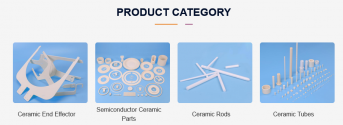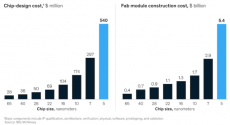The problem is this is not the endgame of MIC2025 at least not how it was announced nor how it's interpreted by the west. The inferred 70% self sufficiency of semiconductor (components) by 2025 is not mere "chip independence". The west read 70% as reaching "supremacy" level. Subsequent sanctions was a reaction to the MIC2025 goal.
Objectively speaking, if someone wants to take away 70% of anything from you, some reaction on your part to stop or slow that effort would be reasonable and even expected. If the script is flipped, I'm sure we will respond in kind as well.
The American politicians are the ones who have problems with MIC2025, the Europeans may disagree with the policy, but they have the Industry 4.0 policy, in fact, they know that European high-tech companies will indirectly benefit from that policy because they will create a chain high-tech supply to China.
MIC2025 goes far beyond semiconductors: it includes the aerospace industry, biotechnology, the digitization of industry, etc. American politicians without even trying to understand the policies, whether or not the plan will succeed, or even benefit American companies, as usual, they get emotional and paranoid and start throwing punches without a clear strategy, of course this will blowback in their faces because it is accelerating, not restricting China's advances and to make it worst is making its advances more indigenous.
The irony that the 70% target was a response to US sanctions and the bigger irony is that Chinese companies had a preference for US semiconductors no matter what the goverment strategy was they would have continue to buy U.S semiconductors because businesses always try to make money in the easier way possible, Qualcomm was a bigger chip supplier to Huawei than Hisilicon. If it weren't for American politicians, the words "domestic substitution" and "de-Americanization" wouldn't be in every damn annual financial report of Chinese tech companies and research institutions. And this thread would be much shorter.
MIC2025 goes far beyond semiconductors: it includes the aerospace industry, biotechnology, the digitization of industry, etc. American politicians without even trying to understand the policies, whether or not the plan will succeed, or even benefit American companies, as usual, they get emotional and paranoid and start throwing punches without a clear strategy, of course this will blowback in their faces because it is accelerating, not restricting China's advances and to make it worst is making its advances more indigenous.
The irony that the 70% target was a response to US sanctions and the bigger irony is that Chinese companies had a preference for US semiconductors no matter what the goverment strategy was they would have continue to buy U.S semiconductors because businesses always try to make money in the easier way possible, Qualcomm was a bigger chip supplier to Huawei than Hisilicon. If it weren't for American politicians, the words "domestic substitution" and "de-Americanization" wouldn't be in every damn annual financial report of Chinese tech companies and research institutions. And this thread would be much shorter.


